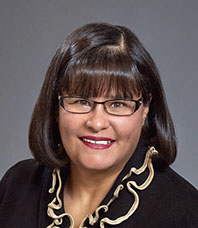C
OVID-19 has left us all wondering how we’re going to bounce back and recover from the pandemic fatigue. The learning loss and trauma that students have experienced during the pandemic have affected their social, emotional, and mental well-being. Some students have even regressed academically and may need additional support to catch up.
Nothing you encounter this year will surprise our Lord, and He has a solution for every challenge. Be strong and of good courage (Joshua 1:9).
challenge
Evelyn Sullivan, M.Ed.
Director of Early Childhood Education and R.E.A.C.H.

Bouncing Back!
Create a Safe Zone
Stay Connected with Parents
Expand Outside-the-Classroom Learning Activities
Develop a Plan for Differentiated Learning
Don’t Forget to Take
Care of Yourself
1
4
2
3
5
Building positive relationships with students sends a message to them and their parents that they are valued and important. An easy way to connect with students is by doing informal check-ins. This can easily be accomplished while going to recess, making impromptu connections in the hall during transition time, or at lunchtime. By asking simple questions you will learn a lot about how a student is feeling emotionally. Try to check in with each student at least once a week. Create a list of your students and check their name off once you have checked in with them.
It is more important than ever for the classroom teacher to stay connected to parents. Sending a note or making a quick call once a quarter will pay off in the long run. Staying connected to parents as much as possible will eliminate the surprise factor at the end of the marking period. They will become partners with/in charting their child’s education and development.
We have often heard that fresh air and sunshine are healing agents. Take advantage of the beautiful sunny days and use the outdoors as an extension of your classroom. Take your math class outside and watch your students’ eyes light up. Outdoor learning has the added benefit of breathing fresh air, which is good for the brain. It will simply make your students happier.
Students who are struggling academically may need one-on-one tutoring multiple times weekly, coupled with a Measurable Action Plan (MAP). An effective MAP will require student accountability, commitment by the REACH team members, and creative solutions. For further information on how to create a MAP for a student, go to the NAD REACH Website: https://reach.adventisteducation.org/wp-content/uploads/2018/07/REACH-Manual-4thEd.pdf - (MAP pages 96-107).
Eating, sleeping, drinking plenty of water, and exercising in the sunny outdoors are all important to your well-being. During overwhelming times, keep a journal and write down how you are feeling; this will help you process your thoughts and emotions. Staying connected to loved ones at least once a day is also vital to self-care. Just remember that you can’t help others until you take care of yourself first.
Fall 2021